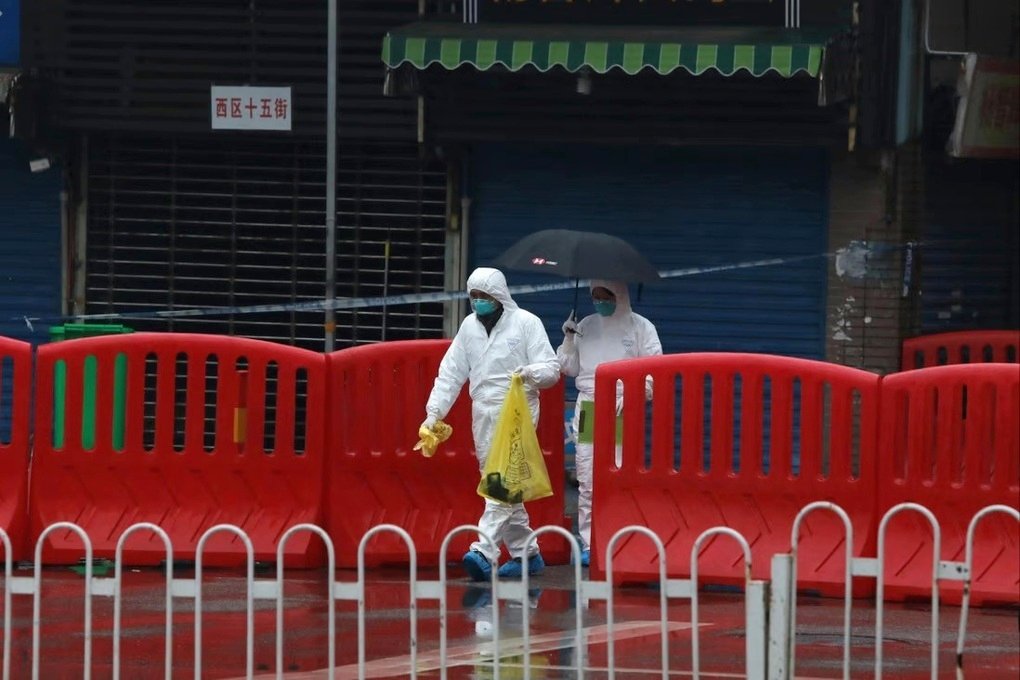
New research proposes a hypothesis about the origin of Covid-19 0
(Dan Tri) – Based on data about infections in the early stages of the Covid-19 outbreak and how it spreads, American scientists have proposed a new hypothesis about the origin of this pandemic.
Wuhan seafood market in Wuhan city, Hubei, China (Photo: SCMP).
Nearly 3 years since the Covid-19 outbreak broke out, the origin of this pandemic is still controversial.
One of two studies analyzed geographical aspects of Covid-19 cases discovered in December 2019, when China announced the epidemic.
The second study analyzed genetic data from the earliest cases to study the early evolution of the virus and concluded that the SARS-CoV-2 virus did not appear to have spread widely in the population before November 2019.
Both studies were published as `previews,` but both have undergone scientific peer review and appeared in a reputable journal.
Michael Worobey, a researcher at the University of Arizona and co-author of both of the above studies, previously sent a letter calling on the scientific community to look more closely at the hypothesis that the SARS-CoV-2 virus escaped from a room.
Previously, there was also research that hypothesized that the virus causing the Covid-19 pandemic originated from the Wuhan market, but researchers wanted to find more evidence to determine that this was actually the origin of the pandemic, not
In the first study, scientists used mapping tools to determine the locations of most of the first 174 cases identified by the World Health Organization.
`This shows us that the virus did not spread in some mysterious way. It actually originated in the market and spread from there,` Mr. Worobey said. The second study focuses on resolving the controversy.
The researchers used a technique called `molecular clock analysis,` which looks at how genetic mutations occur over time to reconstruct the evolutionary timeline of the virus.
Kristian Anderson, co-author of the study, emphasized that their analysis does not mean completely rejecting the hypothesis that the SARS-CoV-2 virus escaped from the laboratory.





